Este artículo está también disponible en / This post is also available in: Spanish
The Sustainable Development Goals (SDGs) are a milestone in human history: a global compact to create a future that leaves no one behind. The 17 SDGs were adopted by the 193 UN member countries at the UN General Assembly almost six years ago, on September 25, 2015. As COVID pandemic had created new challenges in Latin American and Caribbean (LAC) region, we need to reflect on the fulfillment the SDGs and analyze what we need to do to advance on the consecution of these goals by the year 2030.
What are the Sustainable Development Goals?
The SDGs are part of the 2030 Agenda for Sustainable Development. They could be defined as the global plan to achieve a better, more inclusive and sustainable future. The SDGs cover a big spectrum of goals aimed to reach the well-being of the whole planet. They are, therefore, a global call to action to end poverty, attain gender equality, protect natural resources, create sustainable cities, and ensure that all people enjoy peace and prosperity.
The 17 goals are interconnected, and it is important to underscore that these could not be accomplished by 2030 without advancing all of them. The COVID-19 crisis has been a serious setback to the fulfillment of many of these goals in the world; and LAC Region has not been the exception. This is because the pandemic has exposed the vulnerabilities of the region at the same time as it has exacerbated its preexisting inequalities and structural social exclusion. In LAC alone, the pandemic has caused a setback of at least 12 years in terms of poverty, 20 years in extreme poverty and 10 years in gender equality.
How has COVID affected the advance of the SDGs implementation in the region?
There is an old Spanish proverb that says, “we can all be in the same storm, but we are not all in the same boat.” This popular proverb captures the effects that the pandemic is having on our societies, and how it leads to uneven progress on some of the SDGs that address the most vulnerable populations in the region:

As is well known, LAC is the most urbanized region in the developing world, living more than 80% of its population in urban areas. Moreover, the rate of urbanization keeps on growing. Therefore, SDG 11 goal of making cities and human settlements inclusive, safe, resilient, and sustainable, is particularly relevant for the region. Some overlooked issues are likely to be even more relevant in the future. For example, LAC has nearly 80 million people with some type of disability, and the region is entering a stage of accelerated aging. Hence, it is essential that LAC cities take into account the needs of the entire population when designing public spaces appropriately.

Likewise, SDG 1 is at the core of achieving more prosperous and just cities. This SDG states that, to eliminate poverty, we must ensure that all people have equitable access to basic services, property, economic resources, technology and financial services. Before COVID-19 crisis, already one in five LAC residents were living in an informal settlement. Currently, after the onset of COVID-19 crisis,, 33.7% of the population, -that is, one in three Latin Americans,– is now poor, with overrepresentation of household led by women (37.7%), indigenous peoples (30%) and Afro-descendants (37.3%).

SDG 5 recognizes that, to achieve sustainable development, it is crucial to end all forms of discrimination and violence
This SDG – as all of them- is closely dependent on advancing SDG 5. It recognizes that, to reach sustainable development, it is crucial to end all forms of discrimination and violence against women and girls. This goal contrasts with the reality of the region. LAC suffers the highest rates of gender-based-violence in the world, with six countries -Brazil, Peru, Mexico, Argentina, Bolivia, and El Salvador- registering 81% of all cases. Similarly, since the pandemic, women have become poorer in terms of time, spending more time on the burden of care and less on professional or personal development activities. Women with the lowest income dedicate an average of 46 hours per week to unpaid work, while those with the highest income dedicate an average of 33 hours per week. Better designed cities -as SDG 11 demands_ can also contribute to lighten the burden on women.
Are we achieving the Gender Equality goal set in the SDGs?
In the words of the UN Secretary General, Antonio Guterres: “no country is meeting the gender equality goal in time – without this one, no other goal can be achieved; what it is more, in many countries gender inequalities have increased ”.
This panorama is not a coincidence. The data on the progress and research on the SDGs proves that, despite the comprehensiveness of the Agenda, gender issues are rarely considered comprehensively, being relegated in most cases only to the SDG 5 (Gender Equality).
Graph 1: Proportion of publications related to the SDGs in 2018 that include issues related to sex or gender
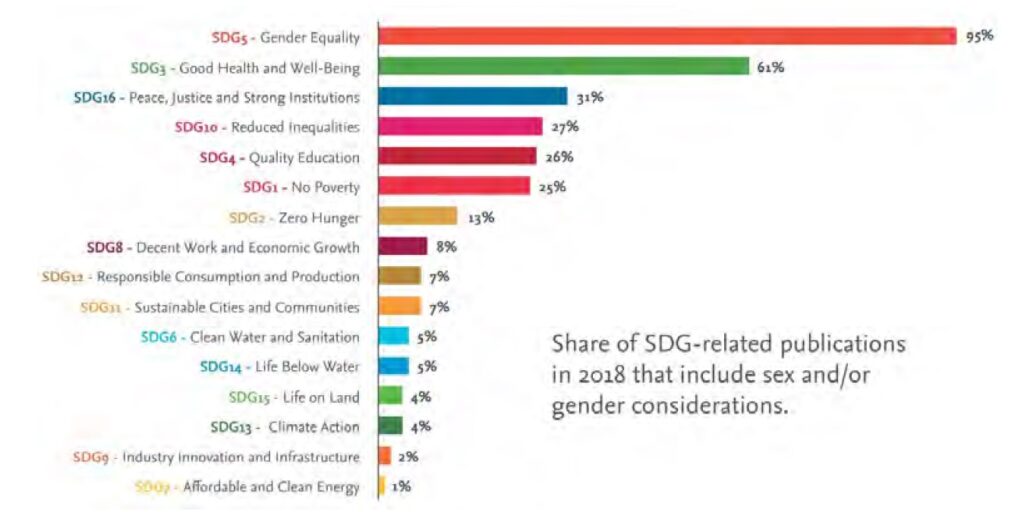
Integrating a gender perspective in advancing towards the SDGs in LAC cities
Implementing the SDGs considering them as isolated objectives (with isolated metrics) does not allow us to capture the development impact of moving forward with cross-cutting issues such as cities and gender equality. For this reason, we need to advance together in the region in the following areas:
- Incorporate the notion of territory and scale in all SDG studies and projects
Graph 2: Interaction of people and nature with the SDGs.
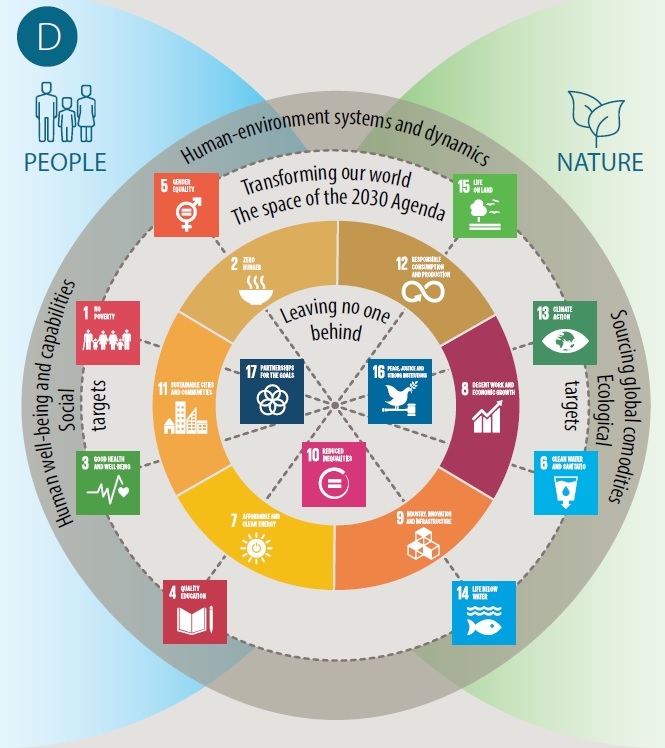
- Identify the different impacts by gender that national and subnational policies have in favor of advancing the SDGs
Graph 3: Conceptual framework of Social Institutions and Gender Index (SIGI) 2019
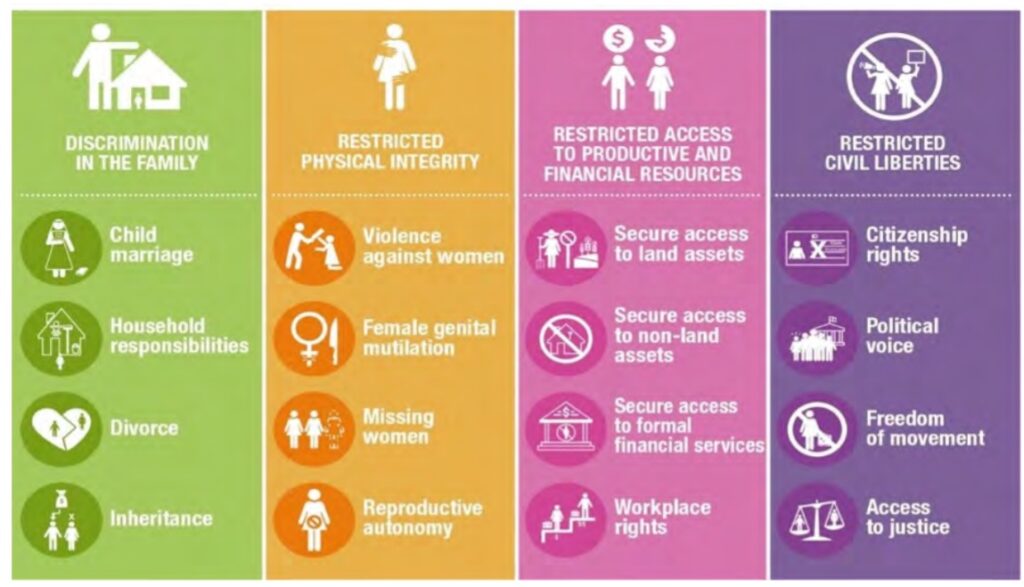
- Highlight the synergies and co-benefits that the SDGs have in achieving the 2030 Agenda.
Figure 4: Interactions between the Sustainable Development Goals (SDGs)
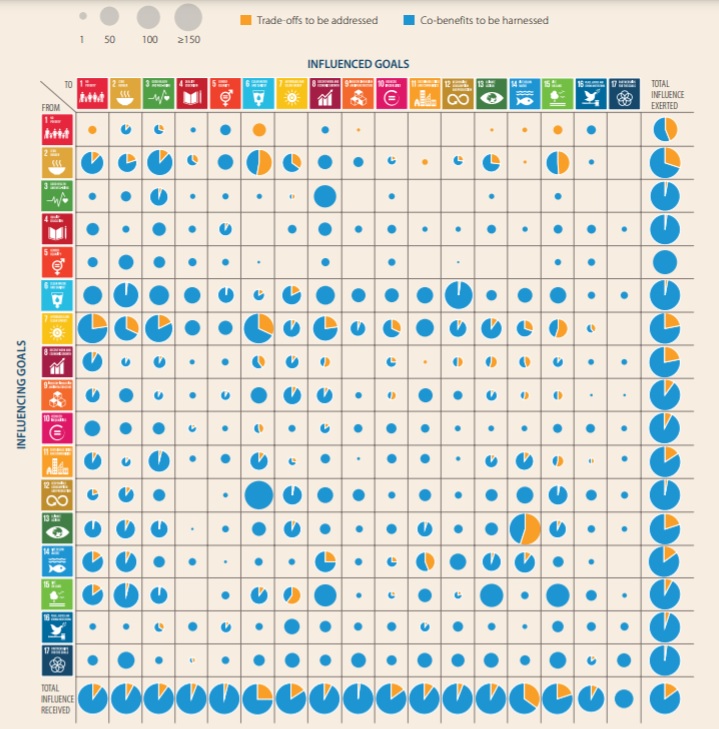
We have nine years to achieve the 2030 Agenda. If we want to achieve the SDGs in LAC, we need actions that integrate inclusive and sustainable urban development with a gender and diversity perspective. Continuing to do business as usual is no longer an option, and it will not lead to a better future for everyone.

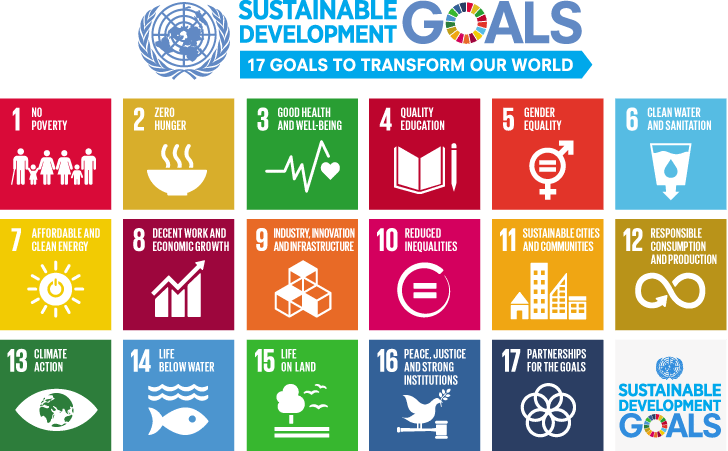
Leave a Reply